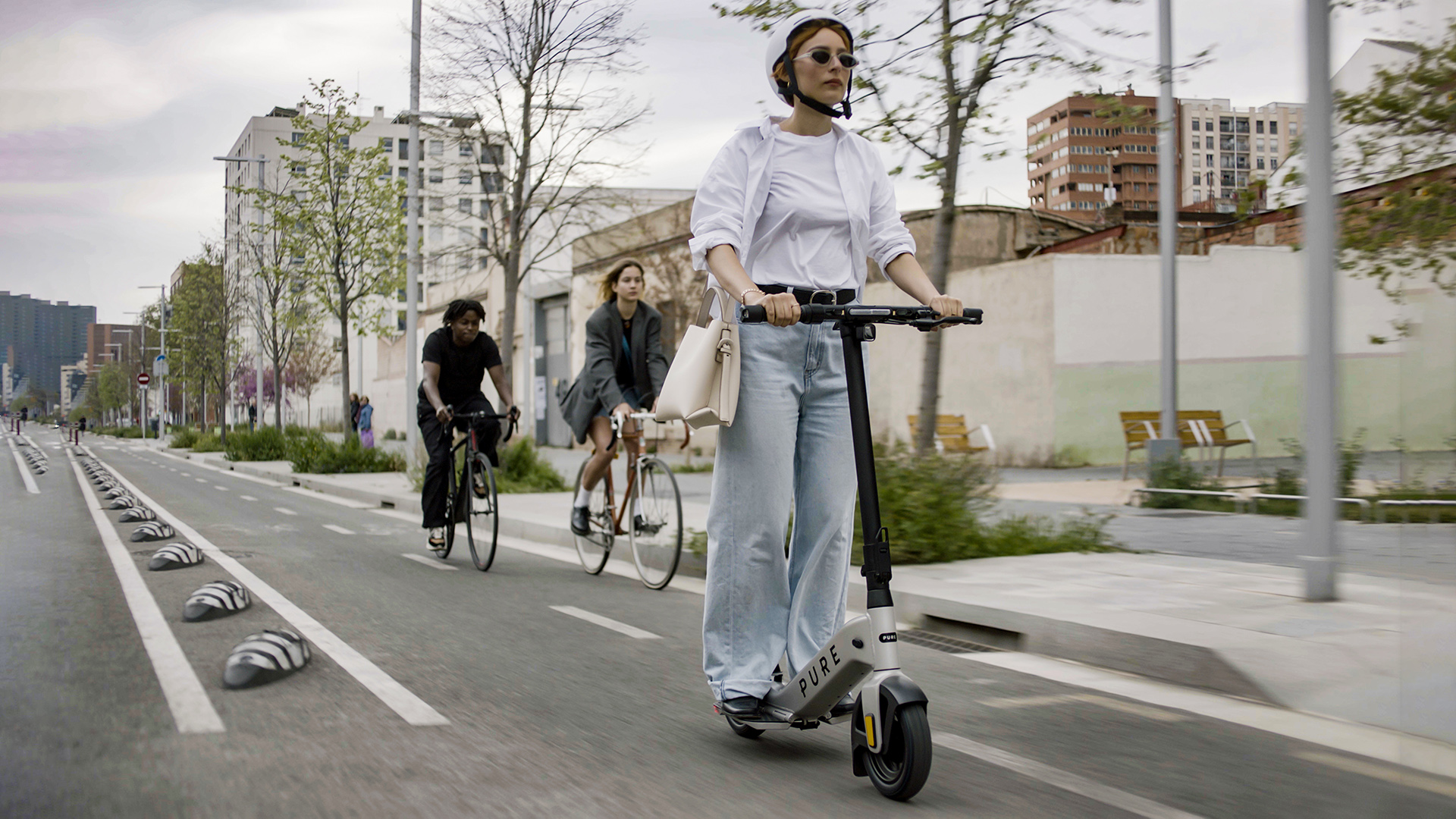

Spencer Hart
The best electric scooters are practical, easily foldable tools for micro-commuting – there's nothing better than an e-scooter for getting around town! These days, thanks to the public's acceptance towards these battery-powered two-wheelers, more practical adult-sized scooters are entering the market than ever before.
If you have a journey or commute that suits this kind of personal transport, the best electric scooters can reduce your journey time and get you through the traffic easier and faster than walking. That said, the question of 'Are electric scooters legal' depends on your local jurisdiction, so you need to exercise caution here.
Electric scooters are only growing in popularity; they're nippy, fun, and much more portable than the best electric bikes. They might be the mode of personal transport you've been looking for. We've reviewed and rated the best e-scooters you can buy because while they look similar, not all electric scooters are created equal. Below, you'll find our top choices for micro-commuting machines.
Our top choice for the best electric scooters right now is Pure's Advance Flex, a magical, folding dream that redefines what one would expect from this kind of gadget. The Busbi Wasp might be a good alternative if you're on a budget. Finally, for those with range anxiety should check out the Segway Ninebot Max G30, the third entry in this guide.
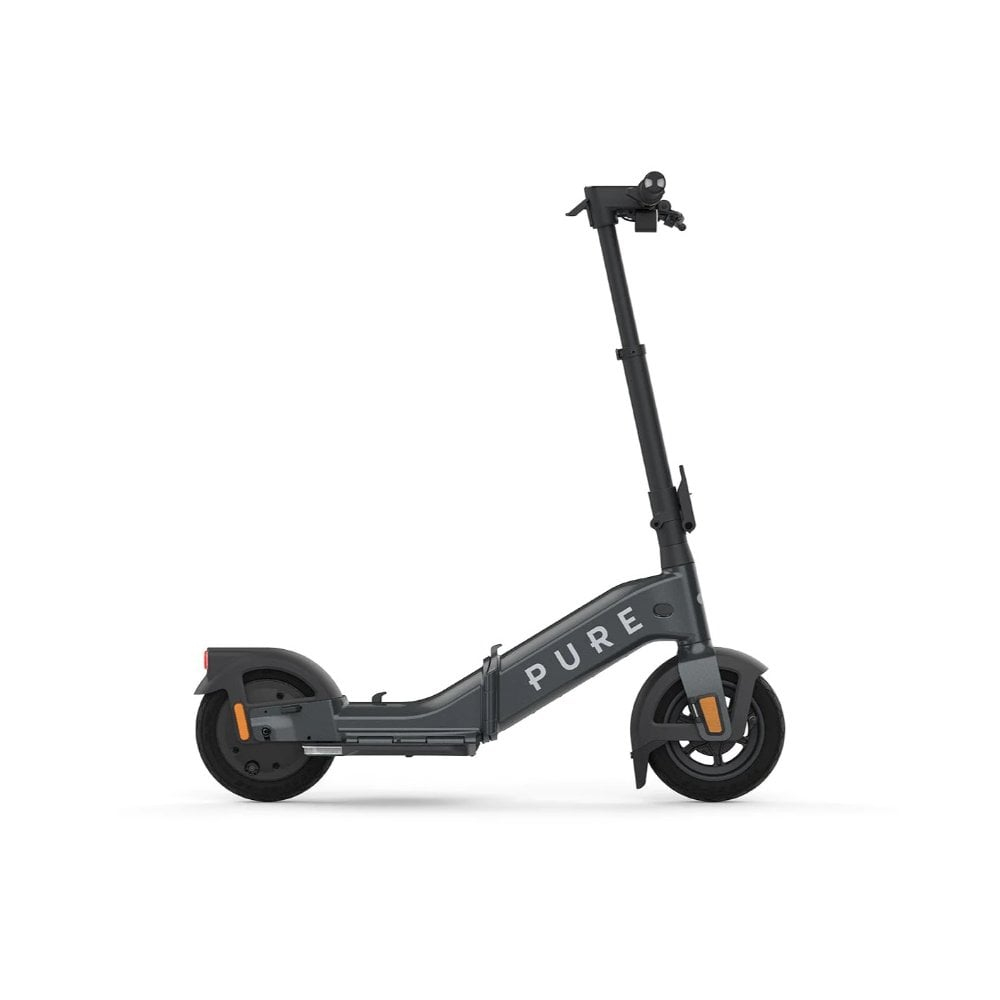
We found the Pure Advance Flex e-scooter to be an exceptional choice for urban commuting, combining innovative design with reliable performance. Its foldability and ride quality impressed us, though it does come at a premium price. Ideal for those seeking both style and function.
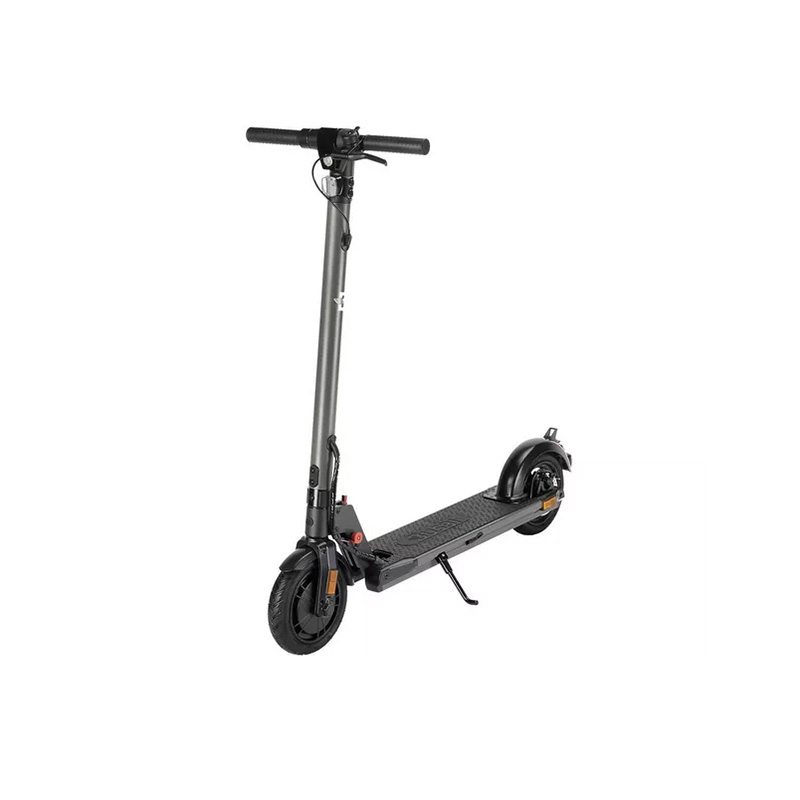
The Busbi Wasp offers great value for its price, delivering solid performance and an enjoyable ride despite some budget-level components. While not the lightest, its air-filled tyres and zippy performance make it a reliable and fun choice for budget-conscious riders.
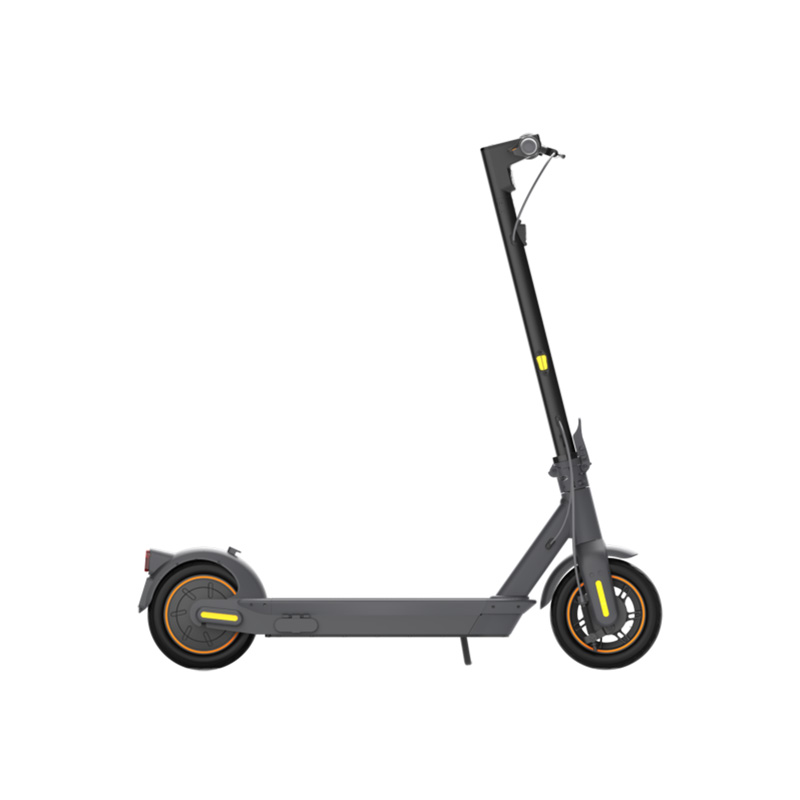
The Segway Ninebot Max G30LP stands out for its excellent balance of range, speed, and durability, making it ideal for daily commuters. We appreciated its smooth ride and sturdy build, though its weight could be a concern for those needing portability.
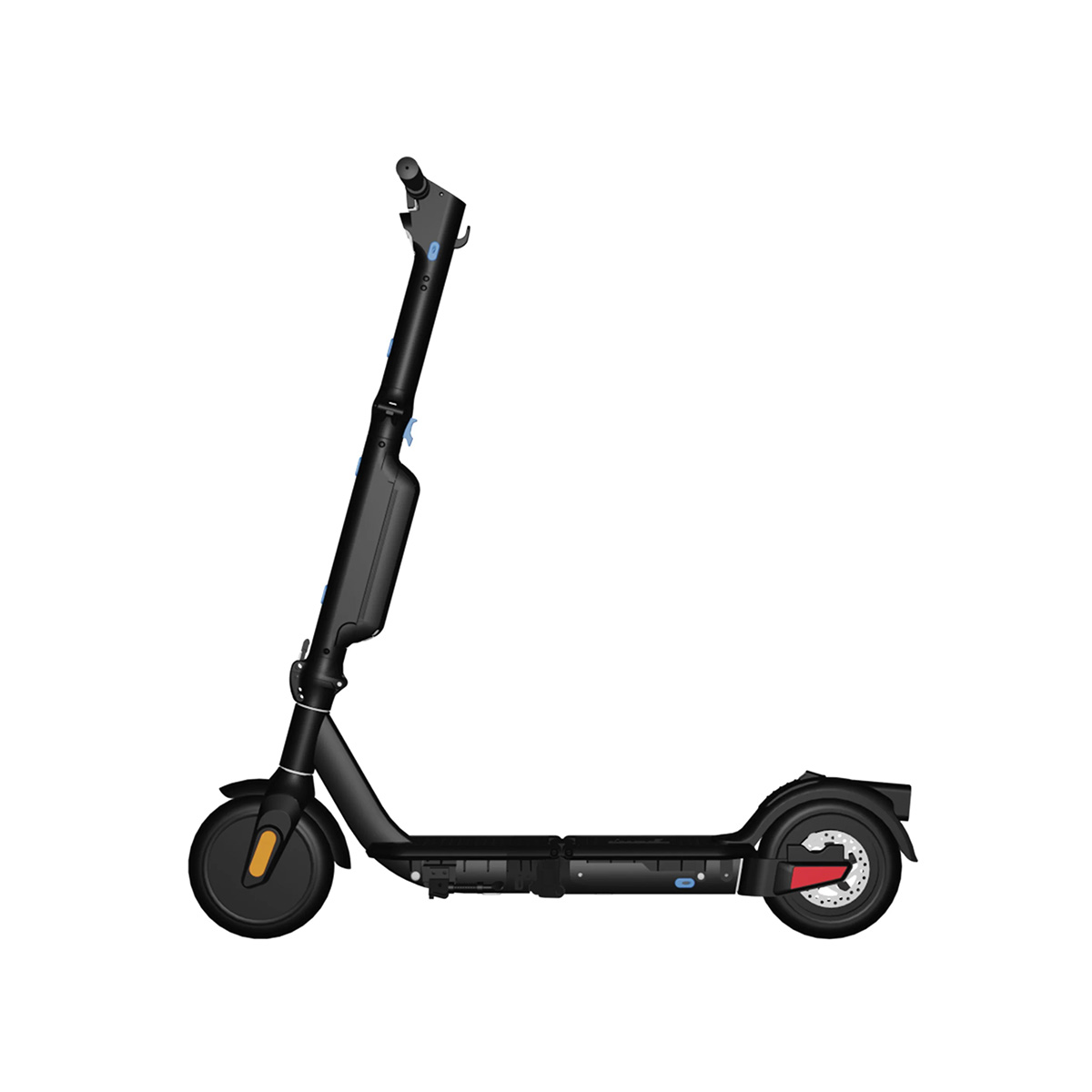
The Riley Scooters RS3 offers a solid ride with decent power and a convenient removable battery, but its overly complicated folding mechanism can be cumbersome. It performs well once set up, but it's certainly not the simplest e-scooter out there.
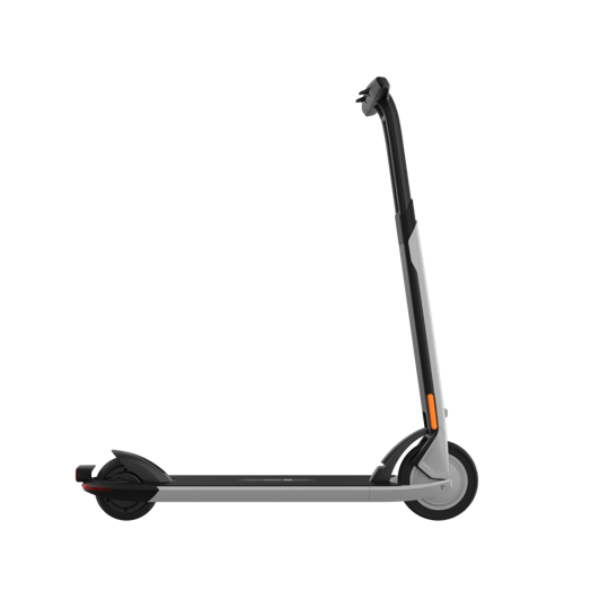
The Ninebot Segway Air T15 brings a sleek, futuristic design and ultra-portability, perfect for short city trips. Its lightweight frame and easy folding mechanism make it highly convenient, though the limited range and speed may not satisfy those seeking longer rides.
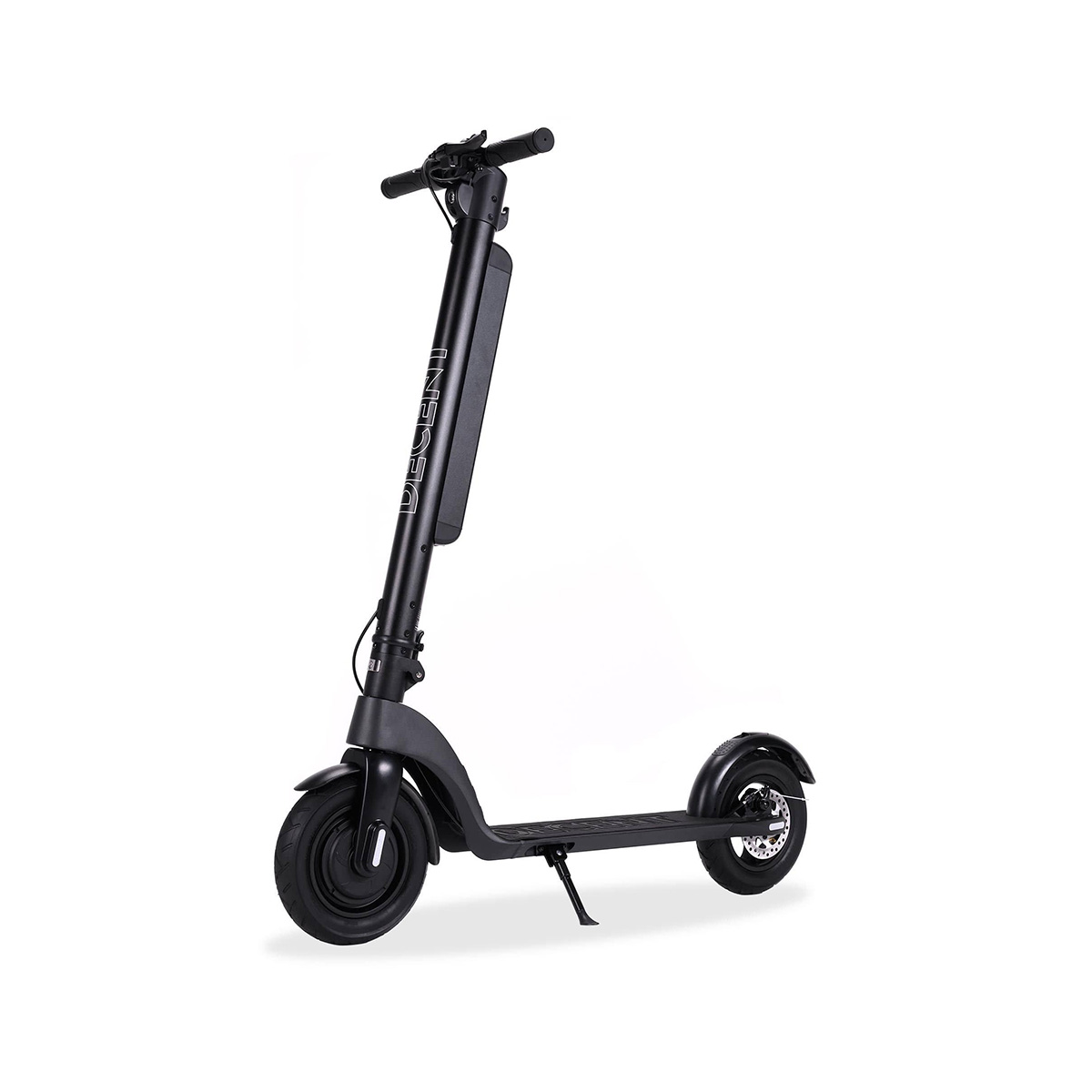
The Decent One Max electric scooter is a reliable and well-balanced choice for urban commuters, offering a comfortable ride with solid range and power. Its large pneumatic tires and sturdy build make it a practical option for everyday city travel.
Best electric scooters you can buy right now
Best overall
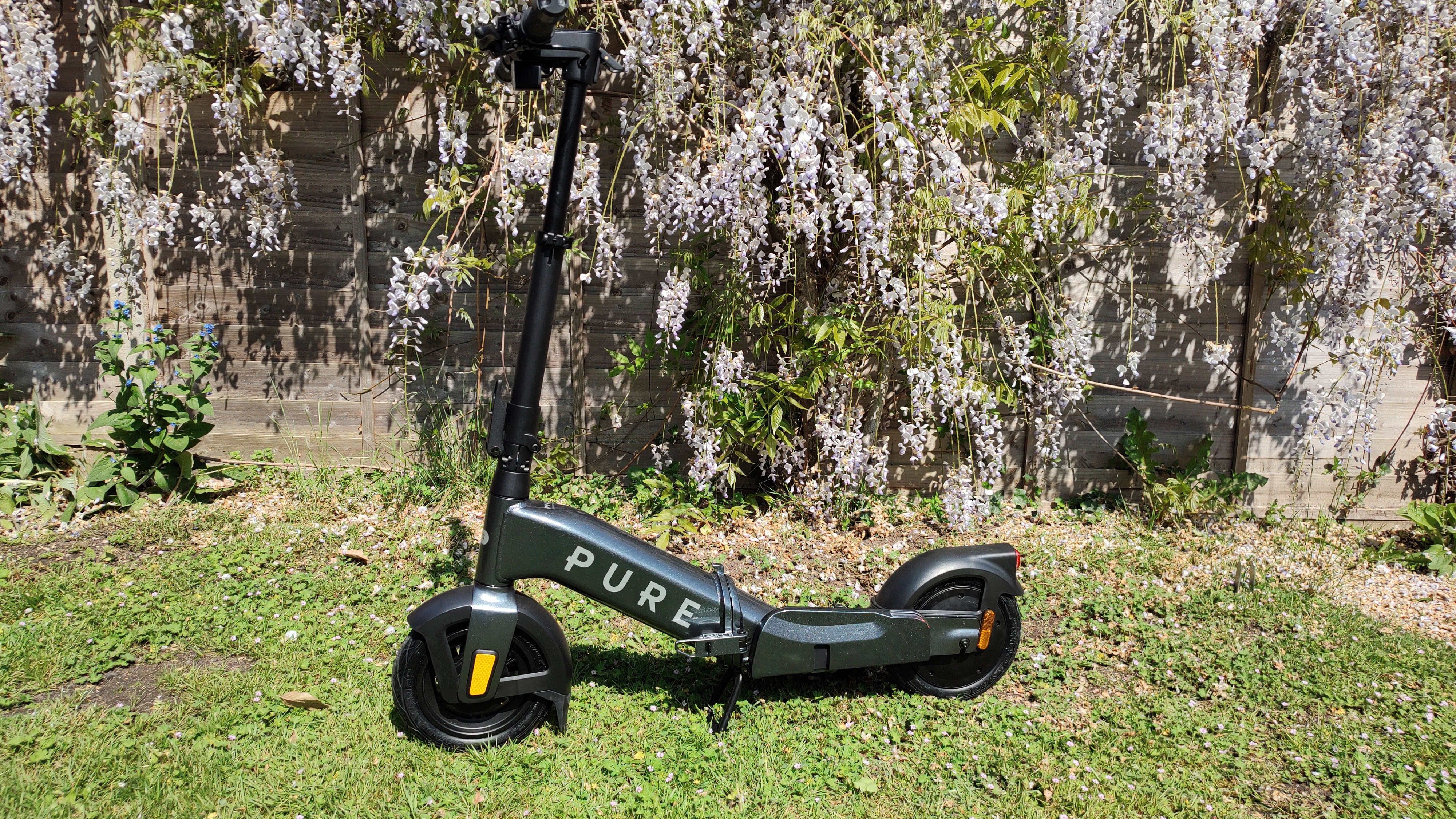
Specifications
Reasons to buy
Reasons to avoid
The Pure Advance Flex is a cool-looking e-scooter that stands out from the crowd thanks to its innovative design, excellent colour options and sheer practicality. Pure’s designers have done a brilliant job with the design of this model, and the completely collapsible nature of it makes the Advance Flex ideally suited to anyone with space issues to contend with.
We loved the forward-facing riding position when we tested the Pure Advance Flex – it really is the next best thing in the electric scooter world. The e-scooter has more than enough power to carry up hills, so riding in this position makes a lot more sense; not to mention, it feels more natural, too.
The tubeless tyres also provide comfort when you’re on the go. Power control is easy and delivered in a seamless, linear fashion. Stopping is equally painless while being seen is also wonderfully covered thanks to the full array of lights, topped with bright flashing indicators. You get the added benefit of the wide deck arrangement, which offers one of the most pleasing ride experiences we've tried so far.
Read our full Pure Advance Flex review.
Best budget
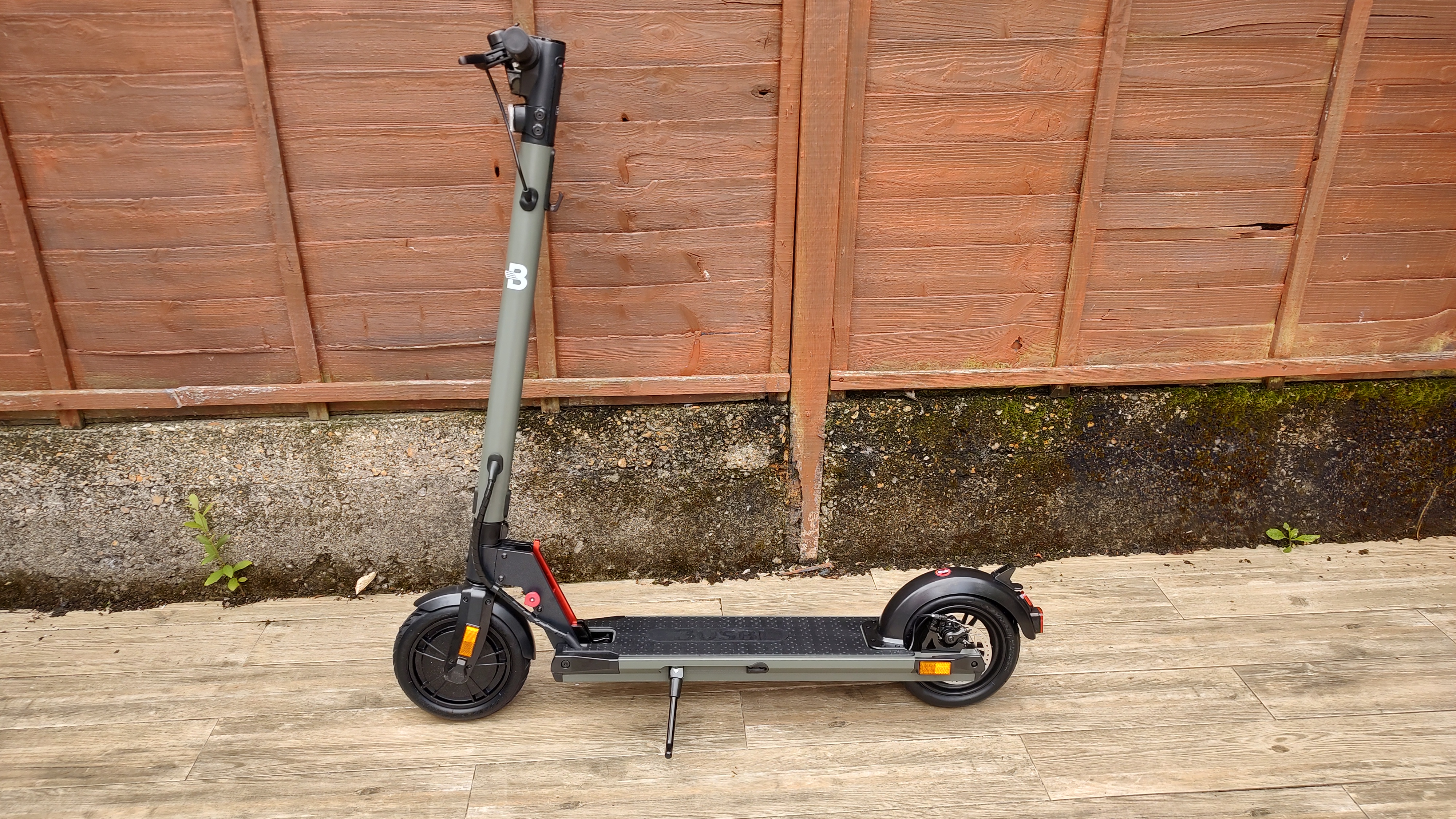

Specifications
Reasons to buy
Reasons to avoid
The Busbi Wasp surprises with its impressive design and performance for a lower-priced model. The green aluminium frame, complemented by black highlights, gives it a sleek look comparable to more premium scooters.
This one-size-fits-all model features a foldable design for portability, although its 16.5 kg weight might be cumbersome for carrying up stairs or on public transport. It supports a payload of up to 100kg, making it suitable for a wide range of users.
Assembly is straightforward but requires careful attention to the manual, particularly for the handlebar setup. The 25 cm wheels with air-filled tyres, disc brake, and 300W front motor are of good quality, and the 7.8Ah battery, housed under the deck, provides decent control via the handlebar display, though it can be hard to read in bright sunlight.
Performance-wise, the Busbi Wasp delivers well, with a realistic range of 35-40 miles per charge and a recharge time of about 4 hours. It easily reaches the standard speed limit of 15 mph, with effective braking from the electronic hub brake and rear disc. The red rear light enhances visibility.
Despite some compromises, such as the reflective display, the Busbi Wasp offers reliable performance, a comfortable ride, and a competitive price, making it a solid choice for budget-conscious buyers.
Read our full Busbi Wasp review.
Best long-range
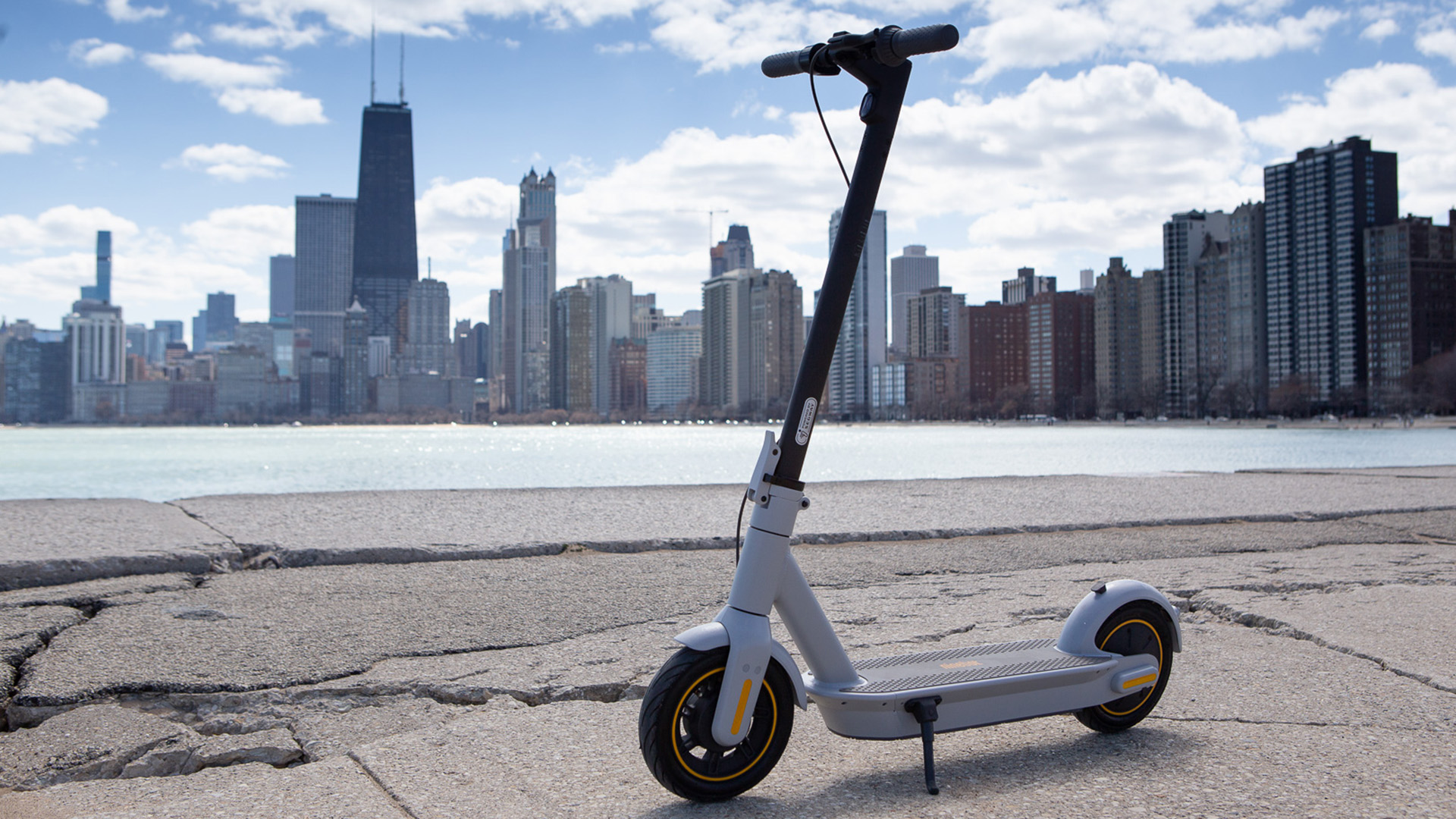
Specifications
Reasons to buy
Reasons to avoid
Perfect for longer journeys, this e-scooter comes with all the trimmings, from a battery life that will give you up to 40 miles of travel and a legally-limited maximum speed of 15.5 mph to an LED dashboard, three-speed modes, app support and even cruise control.
It has a hill grade of 20%, which we found ideal for use in cities with mixed terrain, and an IPX5 water-resistance rating, making it great for splashes and light rain. And, while it isn’t exactly the lightest out there, we did find it easy to fold and put away.
But what really makes this electric scooter a great pick is its price tag. We think it's a great price when you consider everything you're getting. And, unlike other solid black e-scooters, this one comes in a classy dark grey and orange colourway.
Read our full Segway Ninebot MAX G30LP review.
Best for commuting
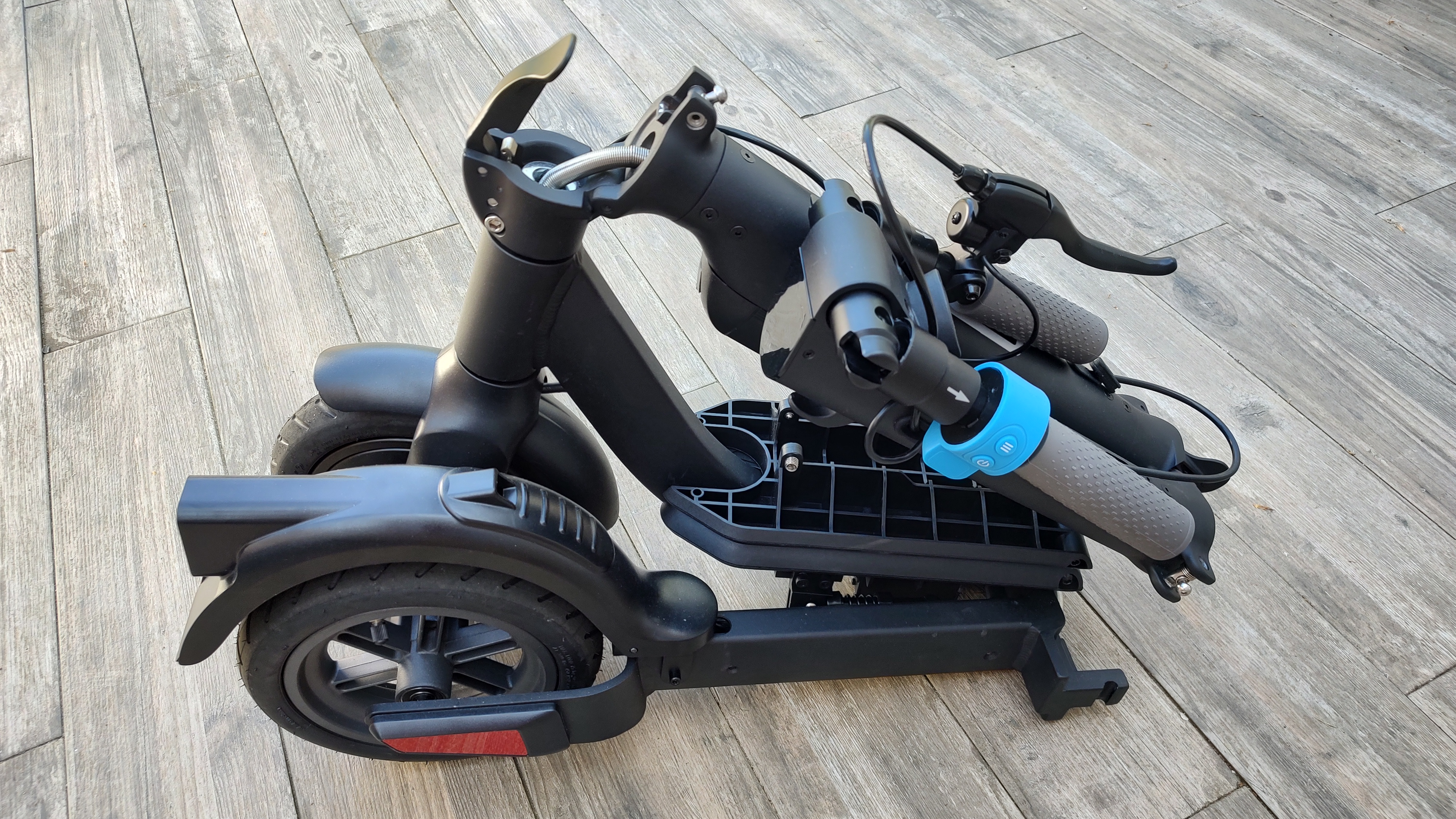
Specifications
Reasons to buy
Reasons to avoid
The Riley Scooters RS3 e-scooter sits at the premium end of the market, boasting high-quality design and features. Despite the impressive marketing, the fully collapsible design initially seems complex and unintuitive, requiring careful attention to the instructional video for proper setup.
Once assembled, the RS3 presents a sleek, generic e-scooter design with solid construction. It features a removable battery and a 350W motor with a 700W peak capacity, along with a disk braking system and E-ABS supplemented by pedal braking. Weighing 14 kg, it supports a payload of up to 120 kg.
The pneumatic tyres, while offering some air cushioning, feel quite solid, suggesting a bumpier ride. The RS3 reaches a top speed of 15.5 mph with a battery range of 15.5 miles. The removable battery allows for carrying a spare, making it practical for longer commutes.
The RS3 provides a solid and forgiving ride on most surfaces. It excels on smooth surfaces but requires caution on slick ones. Braking is effective, and the scooter handles hills well, making it suitable for city routes. The controls are user-friendly, though the display is highly reflective.
The folding mechanism may deter some users due to its complexity, but it becomes easier with practice. Despite this, the RS3 offers quality rideability, ample power, and good performance for lower-speed commuting. The solid tyres may lack cushioning for rougher surfaces, but overall, the RS3 is a reliable and decent e-scooter for getting around town.
Read our full Riley Scooters RS3 e-scooter review.
Best lightweight
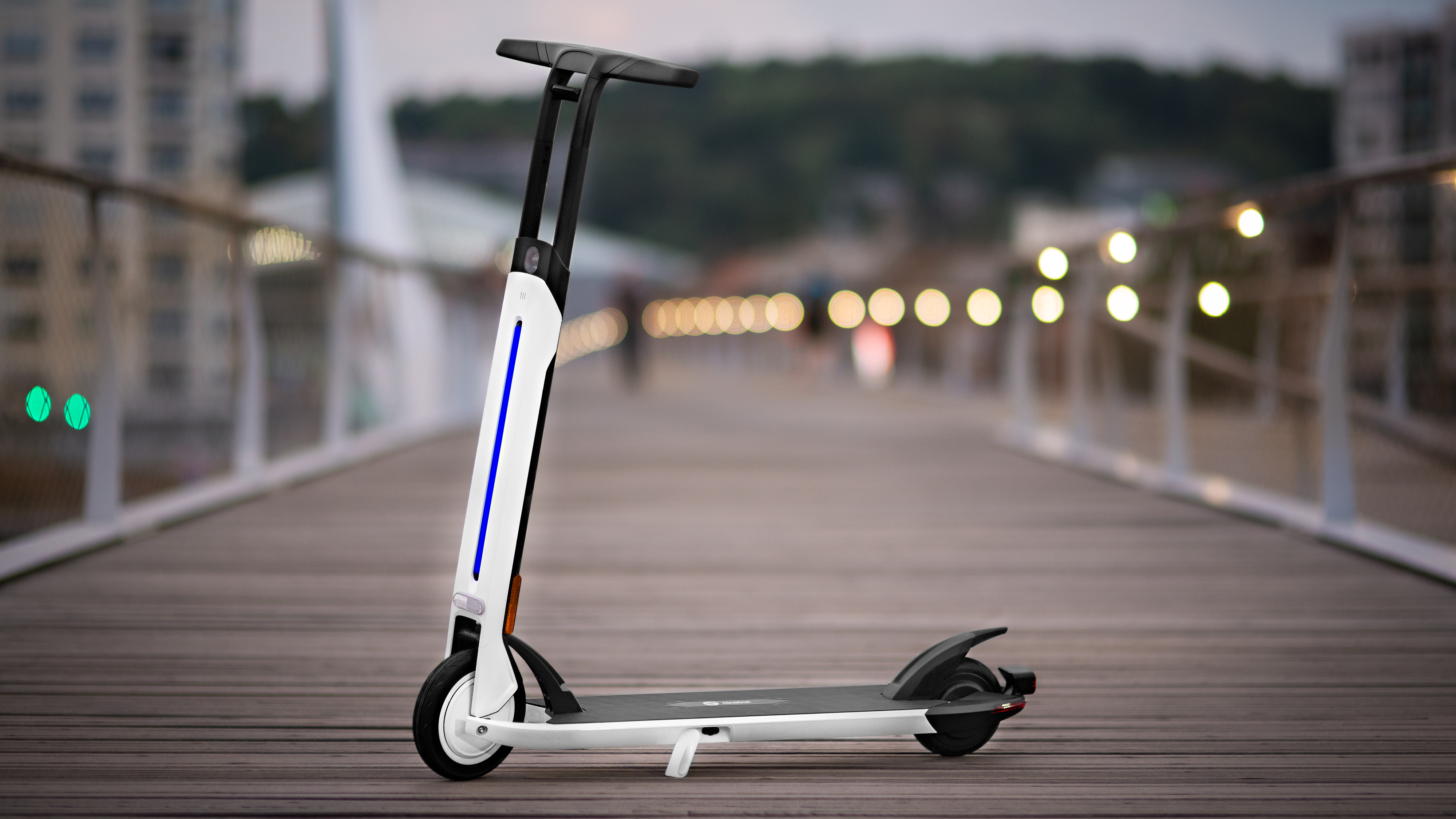

Specifications
Reasons to buy
Reasons to avoid
The Ninebot Segway Air T15 certainly looks the business, but it is smaller, slower and lacks the range of similarly priced rivals. We think it's perfect, however, for those who want to easily stow it in the boot of a car or wheel it onto public transport. During our review, we found it delivers a perfectly acceptable ride, so long as the surfaces are smooth and you haven’t got too many steep hills to contend with.
Of course, the lightweight body, diminutive package and clever stowage solution mean there is a trade-off in performance, though, but the Ninebot Segway Air T15 majors on clever additional features and a classy smartphone app. The choice between this and its many rivals will be down to the sort of use it is destined for and if you really need that futuristic design.
Read our full Ninebot Segway Air T15 review.
Best all-rounder
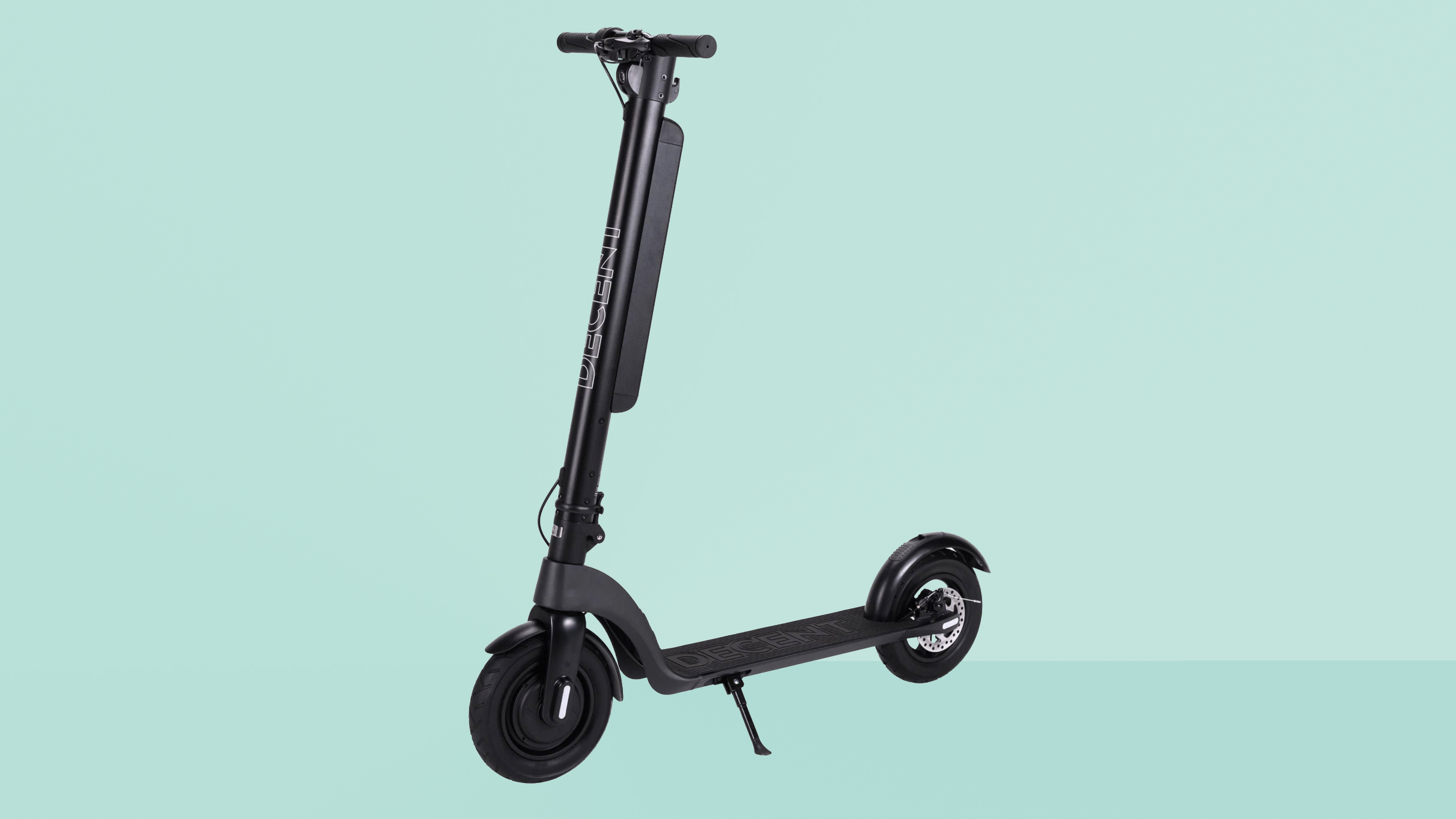

Specifications
Reasons to buy
Reasons to avoid
There's no avoiding it, the Decent One Max is identical to a number of scooters with different names (Turboant, Riley, Elka), but that's not necessarily a bad thing. The factory pumping these out should be experts by now!
The battery is removable and mounted on the handle (rather than the footboard). That means you can keep it indoors at more battery-friendly temperatures rather than in a cold garage or shed. We think that's rather smart, and found being able to charge the battery at our work desk very useful. You can also purchase spare batteries (although these are pretty expensive).
We were also very impressed with the One Max's ride – there's plenty of torque, so acceleration is quick, and the bell, light, and throttle are easy to control. It even has large 10-inch wheels, which make it safer than the Xiaomi, although it's not the most stable e-scooter we've reviewed.
Read our full Decent One Max Electric Scooter review.
How to choose the best e-scooter for you
Picking up the best electric scooter for you is absolutely imperative – it's a proper investment, so you need something you're going to want to ride and something that suits your needs. These things are essentially a narrow plank racing up to 20mph, so safety needs to be a main concern, as these are far more advanced than kids' scooters. But that isn't the only thing you'll need to consider…
Some electric scooters are well suited to a quick hop-on-and-off, sacrificing distance for a vast weight reduction and increased portability. These are ideal for long-distance commutes, where you also need to travel on a train or bus. Other e-scooters pile on the battery for maximum range but leave themselves super-heavy in the process. These are better if you live and work in the same city, and want to avoid using the bus or subway system. Basically, it's a balancing act. If you're commuting a long way, put your money in batteries, but if you're just scooting that final mile, a lighter, more compact scooter might be a better choice.
Is the best electric scooter the fastest electric scooter? Not necessarily. Top speed in the UK is limited to 25km/h (15.5mph), and while most e-scooters will go faster than that, it’s worth noting that you’re more likely to be stopped by police and get your scooter confiscated (and potentially fined) if you're speeding around, driving recklessly, and weaving through traffic. Naturally, common sense is a priority here – don’t ride like an idiot and you probably won’t get stopped.
Consider also the wheels – heavy use requires heavier duty wheels. Most affordable electric scooters come with 8-inch wheels, and while these are fine for smooth city streets, we’d recommend plumping for a model with 10-inch pneumatic tyres and suspension to give you a much smoother ride.
Most of these scooters also have companion apps, which offer a range of useful features. You can digitally lock and unlock the electric motor, which is very beneficial for security. You can also track your rides – kind of like a lazy person’s Strava. Certain companion apps also let you set up your e-scooter, choosing between Eco mode to prolong the scooter’s battery life, or Sport mode to leave panting cyclists in the dust. We like to think of a companion app as a nice bonus, rather than a necessity.
Price is also a major point to consider. The cheapest electric scooter you’ll find is around £200 and prices can range up to around £2,500. It goes without saying, you get what you pay for, so opting for the cheapest model you will find isn’t the best idea. You want to be able to trust the scooter under your feet, because a mechanical failure at around 15mph would result in a trip to Accident and Emergency.
We think you’ll probably want to budget between £450 and £700 for a reliable, well-built e-scooter from a popular brand. This will ensure your electric scooter has the performance to get you around town quickly and won’t break breakdown after a few miles.
If you want more info on the best model to buy for your needs and the factors to consider, check out our how to choose an electric scooter guide. Oh, and you'll want to make sure you're fully kitted out with the best electric scooter accessories as well.
How we tested the best electric scooters
I've reviewed countless electric scooters, and over the years, I've come to develop a rather methodical test route that thoroughly puts each e-scooter through its paces. This route includes hills of varying steepness to test how the scooter handles inclines, as well as varying road surfaces to test the scooter's stability, bump absorption and comfort.
During the many reviews, I will also test to electric scooter's acceleration from a standing start, as well as how well the brakes work and how much confidence they inspire. I also ask, where possible, multiple people to test these electric scooters to see how they react to different loads.
Of course, what's perhaps more important than using these electric scooters on a test route is using them frequently in everyday life. So I'll also use them to commute, to explore a new location, and to visit the shops at the weekend. This teaches me a number of things, from how easy they are to lift in and out of a car boot to how easy they are to fold and unfold and how reliable they are when used heavily. It also gives me a better idea of how long the battery lasts and how long the battery takes to recharge.
The actual review will start when I get the electric scooter out of the box and assemble it. I'll test how difficult or fiddly it is to set up. Where possible, I will also test the electric scooter's app – whether it's easy to connect and stay connected and whether it provides anything useful to the experience. Finally, I'll test every little detail of the electric scooter, from the bell to the lights at night, to make sure you're buying a well-built and safe product.
Are electric scooters legal
Here's where things get a little complicated. Under UK law, most electric kick scooters are not legal for street use unless they're properly registered. Recently, though, the government has announced that privately-owned electric scooters will be made legal, with the announcement expected in the upcoming Queen's speech.
This will remove the current laws banning them (which are based on 1835 regulations surrounding horse and cart driving). This is to encourage more people to use alternative methods of transport when commuting.
These trials, which are currently running across the country, allow you to legally hire and use an electric scooter in public areas where the trials are being held (more on that later).
Some high-powered e-scooters are technically classed as mopeds, though even that classification can be a little complicated, but it is safe to assume that none of the scooters included above can technically be used anywhere other than on private land in the UK.
Pure Electric, the UK’s largest e-scooter retailer says, ‘In practice, electric scooters are already widely used across the UK illegally, with the police generally turning a blind eye to all but the most egregiously reckless rider activity.’
With big names entering the business, and with concerns about the environmental impact of cars at the forefront, you can bet there’s at least some pressure on legislators to get things changed. But, to clarify: electric scooters can be used on private land with the owner’s consent. Thanks to a combination of the Highways Act 1835 and the Road Traffic Act 1988, it is illegal to use electric scooters on roads, cycle paths or pavements. Exemptions have been made for the scooter trial areas, solely for the rental scooters supplied to the relevant local authority. All other scooter use on the public highway will continue to breach traffic regulations and could cause the user to receive a fine and/or points on their driving licence.
US law varies from state to state, so you really must check local laws before you purchase an electric scooter.
Finally, take it from us: whether the laws in your location demand it or not, you’ll want to always wear a helmet when riding an electric scooter. These things move fast and are potentially very dangerous. Protect your head and always be considerate of other people near you.
You'll also want to make sure your e-scooter is properly maintained – you can read all about that in our guide to electric scooter maintenance.
Sign up to the T3 newsletter for smarter living straight to your inbox
Get all the latest news, reviews, deals and buying guides on gorgeous tech, home and active products from the T3 experts

Matt Kollat is a journalist and content creator who works for T3.com and its magazine counterpart as an Active Editor. His areas of expertise include wearables, drones, fitness equipment, nutrition and outdoor gear. He joined T3 in 2019. His byline appears in several publications, including Techradar and Fit&Well, and more. Matt also collaborated with other content creators (e.g. Garage Gym Reviews) and judged many awards, such as the European Specialist Sports Nutrition Alliance's ESSNawards. When he isn't working out, running or cycling, you'll find him roaming the countryside and trying out new podcasting and content creation equipment.
- Spencer HartStyle and Travel Editor
-
 How to watch Mario Kart World Direct – everything you need to know about the Switch 2 launch game
How to watch Mario Kart World Direct – everything you need to know about the Switch 2 launch gameNintendo will host a new Nintendo Direct presentation this week, here's how to watch it live and what to expect
By Rik Henderson
-
 LG OLED G5 review: TV of the year?
LG OLED G5 review: TV of the year?LG's brightest-ever OLED TV is an instant winner – with some AI oddities
By Mike Lowe
-
 Best YETI coolers 2025: ice cold excellence
Best YETI coolers 2025: ice cold excellenceKeep food and beverage frosty with our curated selection of top-rated YETI coolers for every occasion
By Matt Kollat
-
 Best cool box for camping 2025: keep your food and drinks cool and fresh
Best cool box for camping 2025: keep your food and drinks cool and freshBrowse the best cool boxes, cool bags and electric coolers for camping, festivals, picnics and balmy days at the beach
By Matt Kollat
-
 Best smart ring 2025: compact, lightweight health-tracking wearables
Best smart ring 2025: compact, lightweight health-tracking wearablesExperience wearable innovation at your fingertips with the best smart rings available now
By Matt Kollat
-
 5 fans you can use outside: take the heat off with practical outdoor-friendly blowers
5 fans you can use outside: take the heat off with practical outdoor-friendly blowersFeature The best fans for outdoor use at home and away to tackle the summer heat
By Derek Adams
-
 Best Christmas gifts for yoga fans: ideas for beginners to experts
Best Christmas gifts for yoga fans: ideas for beginners to expertsFeature Know someone who loves yoga? Here are the best Christmas gift ideas for yogis
By Bethan Girdler-Maslen
-
 Best fitness mirrors 2025 to take your workouts to the next level
Best fitness mirrors 2025 to take your workouts to the next levelThe best fitness mirrors are here to slim you down and pump you up – without invading your space.
By TJ Fink
-
 Best torch 2025: illuminate your way through the dark
Best torch 2025: illuminate your way through the darkGet the best torch for camping, night hiking, walking the dog or finding your way in a power cut
By Matt Kollat
-
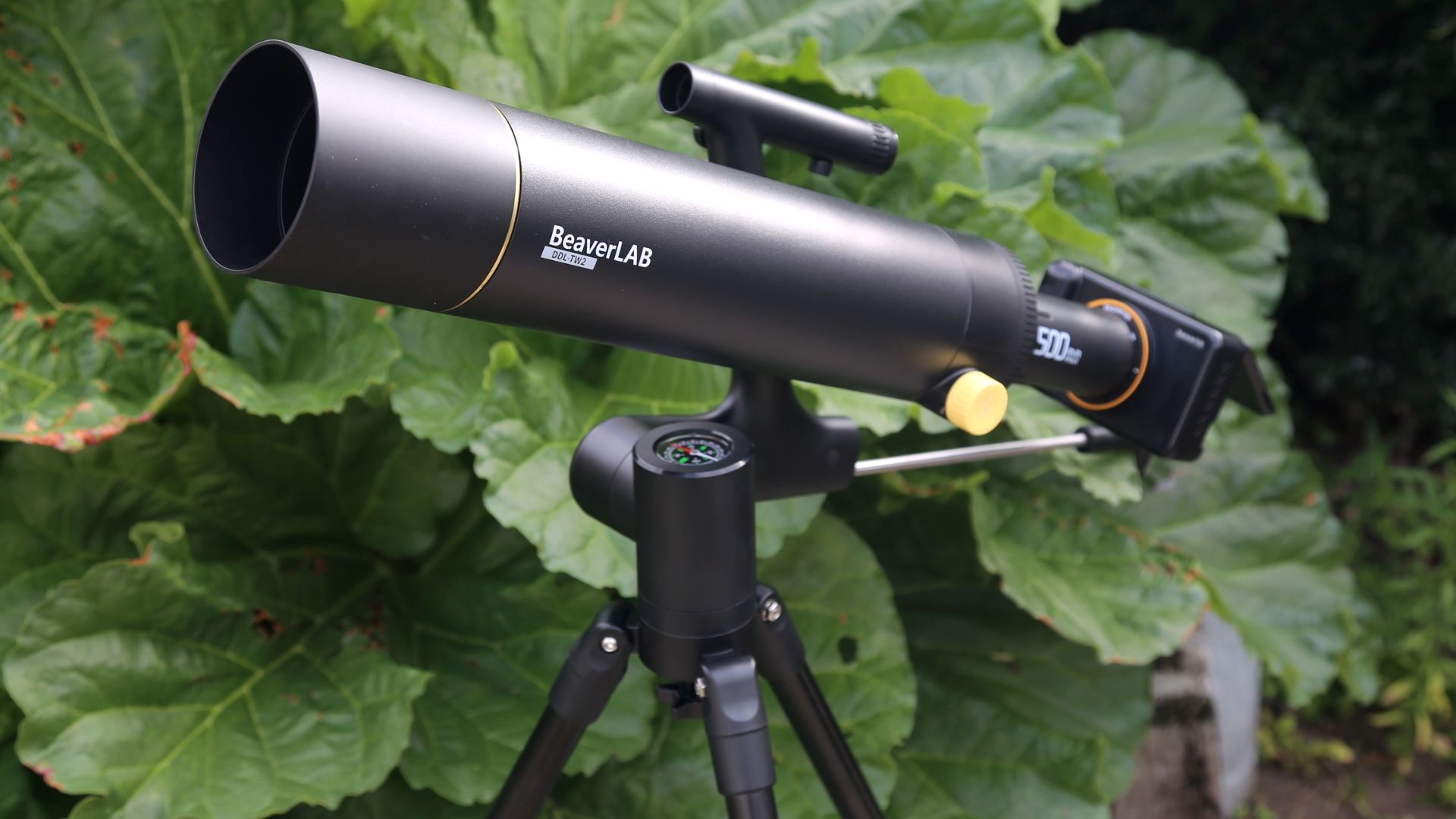 Best telescope for stargazing 2025: Bring the stars closer to home
Best telescope for stargazing 2025: Bring the stars closer to homeExplore the wonders of the universe with the best telescopes, perfect for stargazers of all levels
By Matt Kollat